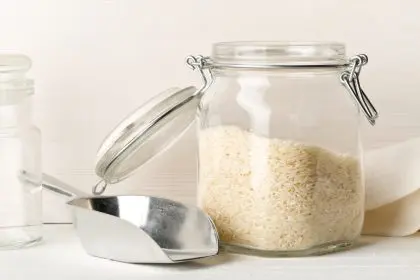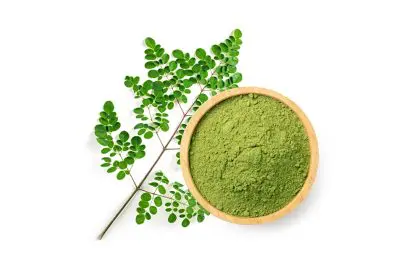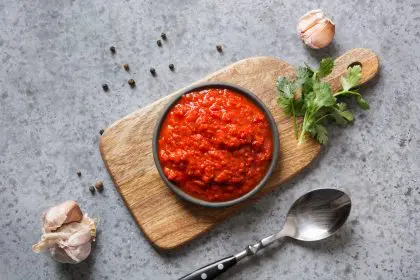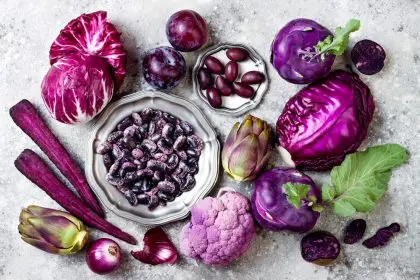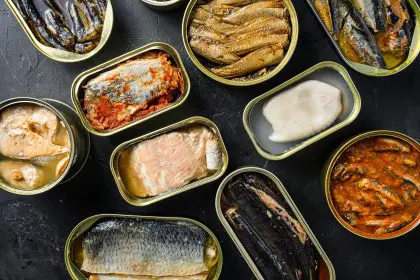You’re feeling that telltale tickle in your throat again. Or maybe it’s the unexpected body aches that have you reaching for the thermometer. Whatever the first sign, we all know that dreaded feeling when a viral infection is taking hold. But what if your best defense isn’t in your medicine cabinet at all?
The connection between what we eat and how our bodies fight infection isn’t just some wellness trend. It’s backed by serious science. Your immune system is an incredibly complex network of cells, tissues, and organs that work together to defend your body against viruses and other invaders. And guess what? This sophisticated defense system requires fuel and building blocks that come directly from your diet.
When a virus invades, your body launches a coordinated counterattack that requires energy and resources. The foods you eat before, during, and after an infection can make a dramatic difference in how effectively your immune system responds and how quickly you recover. Let’s explore why nutrition matters so much when you’re fighting off viral infections.
The immune system’s nutritional demands
Your immune system isn’t just working when you’re sick. It’s constantly patrolling your body, identifying and neutralizing threats before they can cause harm. This ongoing surveillance requires energy and specific nutrients to function optimally.
When a viral infection strikes, your immune system dramatically increases its activity. Your body ramps up production of specialized immune cells, antibodies, and other protective proteins. This immune activation causes a significant increase in metabolic demands, requiring more energy and nutrients than usual.
During infection, your body prioritizes immune function over many other processes. This means nutritional resources are diverted to support your immune response. Without adequate nutrition, your immune system simply can’t perform at its best, leaving you more vulnerable to severe symptoms and prolonged illness.
The concept of “nutritional immunity” refers to how your body strategically manages nutrients during infection. Some nutrients are sequestered away from pathogens that need them to multiply, while others are channeled toward immune cells and tissues. This sophisticated resource management depends on having adequate nutritional reserves.
Power nutrients that bolster viral defense
While balanced nutrition is key, certain nutrients play especially important roles in fighting viral infections. These nutritional MVPs deserve special attention when you’re trying to support your immune system.
Vitamin C has earned its reputation as an immune-boosting superstar. This water-soluble vitamin accumulates in immune cells, enhancing their function and protecting them from oxidative damage. It supports the barrier function of your skin and mucous membranes, your body’s first line of defense against viruses. During infection, your vitamin C requirements increase substantially, which is why supplementation during illness may be beneficial. Citrus fruits, bell peppers, strawberries, and broccoli are excellent food sources.
Vitamin D might be even more critical for antiviral immunity. This sunshine vitamin influences hundreds of genes, many involved in immune function. It enhances the production of antimicrobial peptides in your respiratory tract and modulates inflammatory responses to infection. Vitamin D deficiency has been linked to increased susceptibility to respiratory infections and more severe outcomes. While sunlight exposure helps your body produce vitamin D, food sources include fatty fish, egg yolks, mushrooms, and fortified foods.
Zinc is another immunity all-star. This essential mineral supports the development and function of immune cells and plays a role in inflammation control. It also has direct antiviral properties, interfering with viral replication in cells. Zinc deficiency can severely impair immune function, and supplementation has shown benefits in reducing the duration and severity of colds. Oysters contain more zinc than any other food, but meat, poultry, beans, nuts, and whole grains are also good sources.
Protein doesn’t always get the immune-supporting spotlight it deserves. Yet it’s absolutely crucial for producing antibodies, immune cells, and signaling molecules involved in fighting infection. Protein deficiency significantly impairs immunity, and requirements increase during illness. Quality protein sources include lean meats, poultry, fish, eggs, dairy, legumes, and soy products.
Selenium is a trace mineral with powerful antiviral properties. It enhances immune cell activity and helps regulate inflammatory responses. Interestingly, some viruses become more virulent when infecting a selenium-deficient host. Just one or two Brazil nuts daily can meet your selenium needs, or you can get it from seafood, meat, poultry, eggs, and whole grains.
Omega-3 fatty acids help resolve inflammation and promote recovery after fighting an infection. These beneficial fats, found in fatty fish, walnuts, flaxseeds, and chia seeds, help prevent the immune system from overreacting and causing collateral damage to healthy tissues.
The gut-immune connection
Your digestive tract houses around 70% of your immune cells, making it the largest immune organ in your body. This isn’t coincidental. Your gut is a major interface between your internal environment and the outside world, requiring robust defense systems.
The trillions of beneficial bacteria in your gut, collectively called your gut microbiome, play a crucial role in training and regulating your immune system. These microbes help distinguish between harmful pathogens and harmless substances, preventing inappropriate immune reactions while supporting effective responses against threats.
Dietary fiber serves as fuel for your beneficial gut bacteria. When these bacteria ferment fiber, they produce short-chain fatty acids that nourish colon cells and regulate immune function. Fiber-rich foods include vegetables, fruits, legumes, whole grains, nuts, and seeds.
Fermented foods like yogurt, kefir, sauerkraut, kimchi, and kombucha can introduce beneficial bacteria directly into your gut. Regular consumption of these probiotic-rich foods has been linked to improved immune responses to viral infections.
Highly processed foods, excessive sugar, and too much alcohol can disrupt your gut microbiome, potentially weakening immune function. A diet rich in plant foods and low in ultra-processed items generally supports a healthy gut microbial community that bolsters immunity.
Hydration and immunity
Water might not be a nutrient in the traditional sense, but adequate hydration is absolutely essential for optimal immune function. Water is the medium in which all cellular processes occur, including immune responses.
When you’re fighting a viral infection, your fluid needs increase. Fever, rapid breathing, and increased mucus production can all contribute to fluid loss. Staying well-hydrated helps thin mucus secretions, making it easier to clear viruses from your nose, throat, and lungs.
Hydration also supports the lymphatic system, a network of vessels and nodes that transport immune cells and remove waste. When you’re dehydrated, lymphatic circulation becomes less efficient, potentially hampering immune responses.
Plain water is ideal for hydration, but herbal teas can be soothing during illness. Hot liquids may help relieve congestion and soothe a sore throat. Sports drinks aren’t usually necessary unless you’re experiencing severe fluid losses.
The inflammation balancing act
Inflammation is a crucial part of your immune response to viral infection. It helps recruit immune cells to infected areas and creates an environment hostile to pathogens. However, excessive or prolonged inflammation can damage healthy tissues and worsen symptoms.
Your diet can either promote or reduce inflammation. The typical Western diet, high in refined carbohydrates, sugar, and unhealthy fats, tends to promote inflammation. In contrast, the Mediterranean diet pattern, rich in vegetables, fruits, olive oil, nuts, and fish, has anti-inflammatory effects.
Specific foods with anti-inflammatory properties include fatty fish, olive oil, nuts, colorful fruits and vegetables, herbs, and spices. These foods contain compounds that help regulate inflammatory processes, potentially reducing the severity of symptoms during viral infections.
Sugar consumption can temporarily suppress immune cell function and promote inflammation. While small amounts aren’t harmful, excessive sugar intake, especially when you’re fighting an infection, may hamper your immune response.
Practical nutrition during illness
When you’re in the throes of a viral infection, eating might be the last thing on your mind. Loss of appetite is a common symptom, and forcing yourself to eat large meals isn’t necessary. However, complete fasting may deprive your immune system of needed resources.
Small, nutrient-dense meals or snacks are often more manageable during illness. Smoothies, soups, and similar liquid foods can provide hydration along with easily digested nutrition. They’re particularly valuable if a sore throat makes eating painful.
Traditional remedies like chicken soup have scientific backing. Warm chicken soup provides hydration, easily digested protein, and vegetables while potentially having mild anti-inflammatory effects. The steam may help loosen congestion.
Honey has antimicrobial properties and can soothe a sore throat. Mixed with lemon juice in warm water, it provides hydration and vitamin C alongside its soothing effects. Honey should never be given to infants under 12 months due to botulism risk.
Ginger and turmeric have anti-inflammatory and antioxidant properties that may help manage symptoms. Ginger tea can also help with nausea, a common symptom with some viral infections.
While no food can prevent or cure viral infections, thoughtful nutrition can support your immune system’s efforts to fight them off. Combined with proper rest, stress management, regular physical activity, and good hygiene practices, a nutrient-rich diet forms part of a comprehensive approach to managing viral infections.
Remember that severe or persistent symptoms warrant medical attention. Nutrition supports but doesn’t replace appropriate medical care for serious viral illnesses. By giving your body the nutritional tools it needs, you’re helping your immune system fight more effectively and potentially reducing the duration and severity of viral infections. That’s definitely food for thought next time you feel that tickle in your throat.


